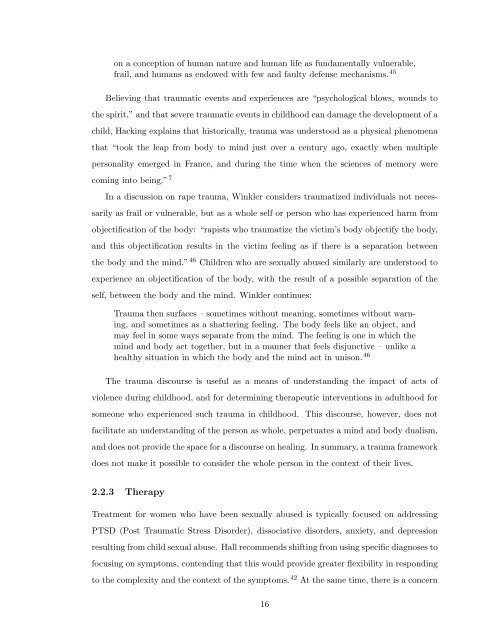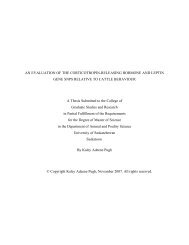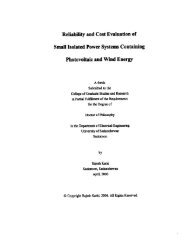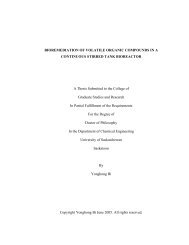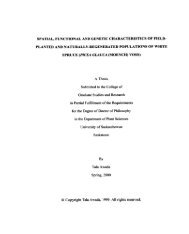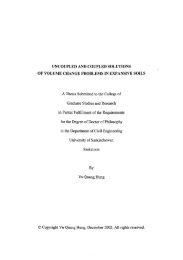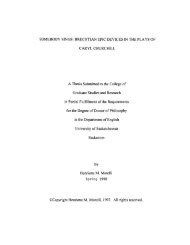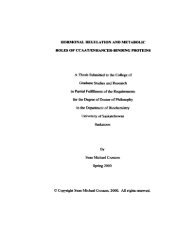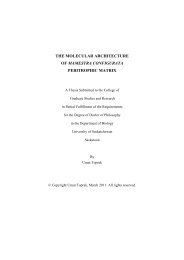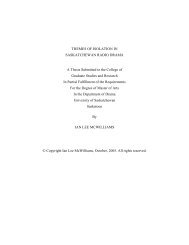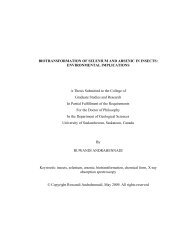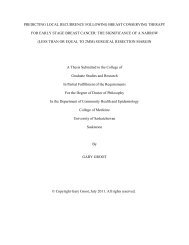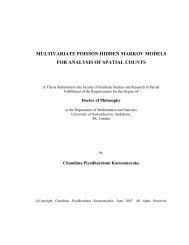Women's Narratives of Healing from the Effects of Child Sexual Abuse
Women's Narratives of Healing from the Effects of Child Sexual Abuse
Women's Narratives of Healing from the Effects of Child Sexual Abuse
Create successful ePaper yourself
Turn your PDF publications into a flip-book with our unique Google optimized e-Paper software.
on a conception <strong>of</strong> human nature and human life as fundamentally vulnerable,<br />
frail, and humans as endowed with few and faulty defense mechanisms. 45<br />
Believing that traumatic events and experiences are “psychological blows, wounds to<br />
<strong>the</strong> spirit,” and that severe traumatic events in childhood can damage <strong>the</strong> development <strong>of</strong> a<br />
child, Hacking explains that historically, trauma was understood as a physical phenomena<br />
that “took <strong>the</strong> leap <strong>from</strong> body to mind just over a century ago, exactly when multiple<br />
personality emerged in France, and during <strong>the</strong> time when <strong>the</strong> sciences <strong>of</strong> memory were<br />
coming into being.” 7<br />
In a discussion on rape trauma, Winkler considers traumatized individuals not necessarily<br />
as frail or vulnerable, but as a whole self or person who has experienced harm <strong>from</strong><br />
objectification <strong>of</strong> <strong>the</strong> body: “rapists who traumatize <strong>the</strong> victim’s body objectify <strong>the</strong> body,<br />
and this objectification results in <strong>the</strong> victim feeling as if <strong>the</strong>re is a separation between<br />
<strong>the</strong> body and <strong>the</strong> mind.” 46 <strong>Child</strong>ren who are sexually abused similarly are understood to<br />
experience an objectification <strong>of</strong> <strong>the</strong> body, with <strong>the</strong> result <strong>of</strong> a possible separation <strong>of</strong> <strong>the</strong><br />
self, between <strong>the</strong> body and <strong>the</strong> mind. Winkler continues:<br />
Trauma <strong>the</strong>n surfaces – sometimes without meaning, sometimes without warning,<br />
and sometimes as a shattering feeling. The body feels like an object, and<br />
may feel in some ways separate <strong>from</strong> <strong>the</strong> mind. The feeling is one in which <strong>the</strong><br />
mind and body act toge<strong>the</strong>r, but in a manner that feels disjunctive – unlike a<br />
healthy situation in which <strong>the</strong> body and <strong>the</strong> mind act in unison. 46<br />
The trauma discourse is useful as a means <strong>of</strong> understanding <strong>the</strong> impact <strong>of</strong> acts <strong>of</strong><br />
violence during childhood, and for determining <strong>the</strong>rapeutic interventions in adulthood for<br />
someone who experienced such trauma in childhood. This discourse, however, does not<br />
facilitate an understanding <strong>of</strong> <strong>the</strong> person as whole, perpetuates a mind and body dualism,<br />
and does not provide <strong>the</strong> space for a discourse on healing. In summary, a trauma framework<br />
does not make it possible to consider <strong>the</strong> whole person in <strong>the</strong> context <strong>of</strong> <strong>the</strong>ir lives.<br />
2.2.3 Therapy<br />
Treatment for women who have been sexually abused is typically focused on addressing<br />
PTSD (Post Traumatic Stress Disorder), dissociative disorders, anxiety, and depression<br />
resulting <strong>from</strong> child sexual abuse. Hall recommends shifting <strong>from</strong> using specific diagnoses to<br />
focusing on symptoms, contending that this would provide greater flexibility in responding<br />
to <strong>the</strong> complexity and <strong>the</strong> context <strong>of</strong> <strong>the</strong> symptoms. 42 At <strong>the</strong> same time, <strong>the</strong>re is a concern<br />
16


